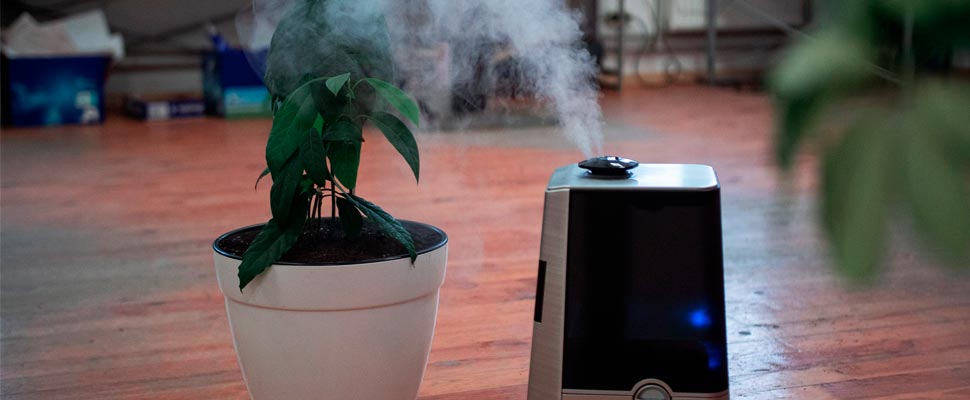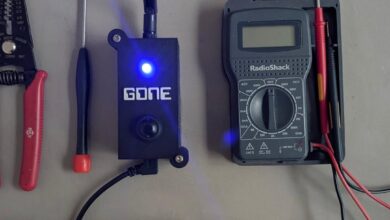Air purifiers: why are they important for your home?
Cleaning the air of polluting and allergenic particles as well as bad smells is possible with the good use of an air purifier.

Everything you need to know about air purifiers. / Photo: Pexels
LatinamericanPost| Juan Manuel Bacallado
Escucha este artículo
Leer en español: Purificadores de aire: ¿por qué son importantes para tu hogar?
The market for air purifiers grows continuously, in 2016 sales were $ 4.10 billion, while an income of $ 11.4 billion is estimated for 2025, according to a reported in ACR Latin America, this increase has as its main cause the increasing air pollution at a global level, in the Latin American region, countries like Peru and Chile are in positions 33 and 35 of countries with the most polluted air in the world, according to the IQ Air ranking, while Mexico, Colombia, and Argentina are 48, 64 and 65, all with moderately polluted air.
La ciudad con peor calidad del aire en Latinoamérica es Coyhaique en Chile (lugar 213 en el mundo), según indicó el reporte IQAir 2019 que recalcó este año que el impacto de la contaminación del aire sobre la humanidad es “más peligrosa que el coronavirus” https://t.co/odSFnUuMPH pic.twitter.com/IPCEElWIHo
— LA Network (@La_network) March 11, 2020
Despite the fact that this polluted air is found mainly in industrial cities with a high population, such as Mexico City, Santiago de Chile or Medellín in Colombia, many toxic particles accumulate in areas without sufficient ventilation such as homes and offices, accumulating compounds from the burning of fuels and chemicals from industrial processes, pollen, dust, mites, pet hair and even viruses, according to Professional Review. For this reason, it is necessary to improve air quality considerably through air purifiers.
It may interest you: Latin America: which are the cities with the cleanest and the most contaminated air?
What does it consist of?
Air purifiers are devices that are used in strategic parts of a home. These absorb the air around them through a fan and pass it through a filtering process -which can vary depending on the system used by the manufacturer- and then return the clean air to the outside. The key to the functionality of a purifier consists in the type of filtering, volume of space, power and noise generated, this last factor is mainly aimed at comfort, according to Xataka.
¿Qué es un filtro HEPA? – https://t.co/4F7OUIrUvS – Si buscas purificadores de aire aires acondicionados robot aspiradoras entre otros aparatos electrnicos los filtros HEPA son una constante Pero Qu son los filtros HEPA Y Qu los hacen tan especiales pic.twitter.com/EBkUaZ1h8Q
— Purificadores de Aire (@PuriDeAire) February 18, 2020
Filter type
As for the type of filtering, it refers to the quality of the filter and if it has some extras, a good air purifier must have a HEPA filter (High Efficiency Particulate Air) and not a “HEPA type”, since this category means that it meets the standards necessary to filter particles greater than 0.3 microns with a 99.97% efficiency, which is equivalent to 0.003 millimeters in size. For their part, "HEPA-type" filters may not meet standards and take advantage of the name for "marketing" purposes.
The HEPA filter class can also vary the filtering efficiency, the lowest standard is H10, which indicates the filtration of more than 85%, while the maximum standard U17 filters 99.99%. On the other hand, there are air purifiers that add filters of other types than HEPA, such as activated carbon filters, odor filters or ultraviolet light, improving the absorption of chemicals and gases as well as the elimination of bacteria. It should be noted that whatever the filter, it will be necessary to replace it every certain period of time as indicated by the manufacturer.
Con un filtro HEPA, el aire se siente más puro que nunca.
Compuestos por mallas de fibra de vidrio que atrapan hasta la más pequeña partícula contaminante, los sistemas de limpieza con filtros HEPA pueden ayudaros si sois alérgicos, y para cuidar de vuestra salud respiratoria. pic.twitter.com/dvK6gXfKjz
— Sirena Europe (@sirenaeurope) September 18, 2019
Filter space
The volume of space is related to the size of the area for which the air purifier is designed to work, this data is supplied by the manufacturer and must be taken into account before acquiring it, as it must be able to filter the air for the space it has intended to be used, be it a room, a room or an office.
Also read: How much are you polluting your office air just by existing?
Power and sound
In the case of power, it is the amount of air that can be filtered per minute, so the bigger the place, the more power the purifier will require. This data must be taken with importance, since if it does not have the necessary power, the purifier will work longer than it should and will shorten its useful life, likewise, this data is supplied by the manufacturer.
The sound is ideal if it is going to be used in rooms, since it could work during the night or it will simply be located in a space where concentration is needed, the ideal according to Xataka is that it emits a noise less than 30 dB, to have a reference, a refrigerator in optimal conditions generates a noise of between 30 and 50 dB.
Beware of ozone
Many air purifiers include ozone systems, however, IQ Air explains that this is dangerous, since they emit ultrafine particles of ozone in the air, which, if not in a sufficiently ventilated space, increases the presence of ozone to a harmful level that can cause heart or respiratory diseases such as asthma, the same happens with air ionizers.





